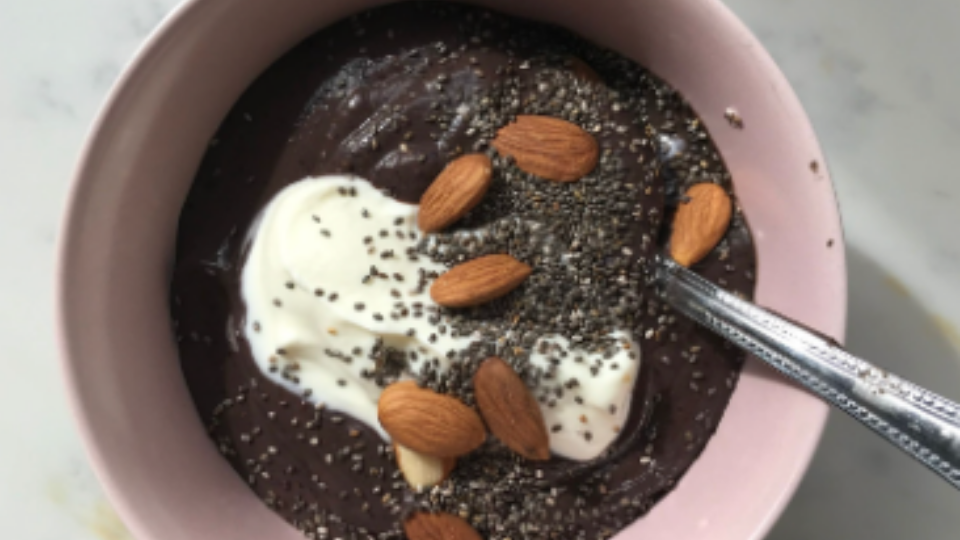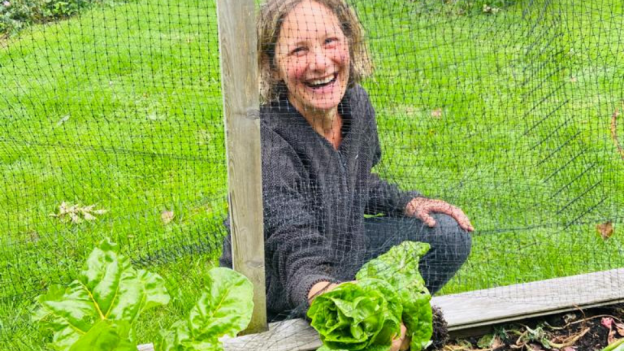
We all know that good nutrition can make us healthier, but can it make us happier? Lindsey Whistler shares with us how nutrition can affect our mental health and mood.
Can foods improve your mental health and what are feel good foods? According to the medical journal The Lancet, ‘nutrition may be as important to mental health as it is to cardiology, endocrinology and gastroenterology’ (Sarris et al., 2015). Read on to understand how the food choices you make have a direct impact on the most delicate organ in your body: your brain.
THE GUT-BRAIN AXIS
When you eat, remember – you are never eating alone! The trillions of bacteria that live in your gut, and make up your microbiome, are feasting too. The bacteria interact with the food that you eat and communicate with your brain via the gut-brain axis. This communication happens in a number of ways, including sending messages via the Vagus Nerve (the main nerve of your parasympathetic nervous system) and the production of neurotransmitters (the chemical messengers).
This means that the state of your microbiome is critical to your mental wellbeing. So how do we keep it happy and healthy?
DIVERSITY IS KEY
We want to encourage diversity of bugs in our gut. Think of the microbiome as a garden, we want lots of different plants to grow, without any overgrowing and taking over. Having a range of different strains keeps the environment happy and helps our immune system to function. It keeps inflammation at bay, thereby reducing our risk of obesity, high blood pressure, type 2 diabetes, dementia and Alzheimer’s Disease.
We can achieve this by eating a fibre-rich diet, full of different types of fruits, vegetables, beans and legumes. We can also use probiotic foods, such as artichokes, pears, apples, berries and eat probiotic foods – yoghurt, kimchi, miso, sauerkraut.

It is worth noting that processed foods that are high in salt, sugar and fat as well as alcohol can allow destructive bacteria to proliferate in the gut, so keep these to a minimum.
GO ON HOLIDAY
One diet model that supports this is the anti-inflammatory Mediterranean diet. It is also backed with plenty of research to suggest that it is effective as a brain-protective dietary approach. This diet places brain-healthy activity such as socialising at its core, and is rich in fresh, delicious foods that will benefit your whole body, such as;
- Fruit and vegetables, providing vitamins and minerals
- Wholegrains, packed with complex carbohydrates, B-vitamins and fibre
- Olive oil, anti-inflammatory, provides unsaturated fats
- Oily fish (such as trout, salmon, mackerel, anchovies, sardines, herring), provides those all-important polyunsaturated fatty acids. If you are vegan or vegetarian it is essential that you supplement DHA.
- Nuts & seeds, for protein, fibre and vitamin E

30 IS THE NEW 20
Aiming to eat 30 different plants weekly gives your gut a fantastic range of fibre and nutrients to feast on. This might sound like a lot, but remember that every plant counts, including herbs and spices. Try the recipe at the bottom of this article for a hit of (at least!) five different plants and prebiotics at breakfast.
EAT THE GOOD STUFF
Fermented foods and drinks such as kefir, natural yoghurt, kimchi, sauerkraut and miso contain beneficial bacteria that will help increase the diversity of your microbiome. Include a variety of these across the week. There’s no need to overdo it, a couple of tablespoons a day is enough.
PROTEIN POWER
We know that protein is key for a variety of functions in the body – but did you know that the amino acid tryptophan (a building block of protein) converts to serotonin in your central nervous system? Serotonin contributes to feelings of happiness.
Include foods like milk, chicken, tuna, oats, leafy greens, nuts and seeds across your week to feel the benefits. If you are vegetarian or vegan, combining different plant proteins is the best way to ensure that you are consuming the full range of amino acids.

OPTIMISE YOUR MIND
There are a wealth of brain supplements available these days, also known as nootropics. Benefits include:
- Increased alertness and focus
- Reduced risk of dementia and Alzheimer’s Disease
- Increased brain power (boosts memory and strengthens thinking)
These can sound too good to be true. Exercise caution when buying into supplements – my advice would be to adopt a “food first” approach, optimising your diet first and foremost, and going for supplements that have good quality research backing their benefits.
TRY THESE:
Turmeric (curcumin) – a potent antioxidant, anti-inflammatory herb. Add fresh or ground in cooking, juice it fresh (mix with a little black pepper to improve absorbency), or supplement with Nutri-Advanced Curcumin Megasorb. This is also fantastic if you have sore joints.
Ginkgo Biloba – is proven to improve cognitive function by increasing blood flow to the brain. Try Higher Nature Ginkgo Biloba 6000.
DHA – a type of Omega 3 fatty acid, essential for brain health and function, memory and focus. Aim to consume 3 portions of oily fish weekly, or supplement with Bare Biology Omega 3 Mini Capsules.
Probiotics – after a bout of ill health or taking a course of antibiotics, repopulate the good bacteria with a course of prebiotic such as Optibac For Everyday.
ENJOY YOURSELF
Cultivating good mental health isn’t all about food, however. Enjoyment of food (and life!) is key, including allowing yourself treats and comfort foods that make you feel good. Deprivation is the opposite of pleasure – don’t allow strict diet rules to get in the way of a balance of healthy, happy choices.
Body positivity is all about doing positive things for your body – whether that’s green juices or Friday night pizza – do what makes you feel good.

TRY THIS: Stress Relief: Building Resilience practice with Vanessa Michielon
- Connect with others – studies have shown that positive interactions with others helps us serve basic needs such as feeling connected and appreciated. This could mean reaching out to a friend, family member, colleague or simply smiling at someone on the bus.
- Meditate to appreciate – stress is a major trigger of poor mental health. Meditation is a wonderful way to soothe your nervous system and find calm and focus in an increasingly frazzled world.

TRY THIS: We Rise meditation with Carlene Bogues and enjoy 7 minutes of peace and connection to yourself
- Develop an attitude of gratitude – practising gratitude every day, such as writing down every good thing that happened to you from when you woke until you went to bed, helps to train your brain to look for the positives.
Talk to Someone if you are Struggling
On a final note, although having the fundamentals of a good dietary approach in place is wise, there is no substitute for proper medical care when the situation requires it. Please go and talk to someone if you are struggling. Remember, you are not alone: sharing a problem can be the first step to recovery.
RECIPE: Chocolate Smoothie Bowl
Ingredients
1 scoop chocolate protein powder
1 small banana
A handful frozen berries
A handful spinach
A little milk/plant milk to thin if needed
1 tbsp natural yoghurt (with live cultures)
1 tbsp chia seeds
6 almonds or any nuts of your choice
Preparation
Mix all ingredients together in a bowl
Go wild with toppings! Hemp seeds, pumpkin seeds, nut butters and extra fruit are all delicious!

Nutrition
This thick, delicious smoothie bowl is packed with protein and plant foods, great for microbiome diversity and energy at any time of day.
Ready in 5 minutes
Serves 1

Lindsey Whistler MA, Nut. Dip.
Lindsey is a Registered Nutritional Therapist with ANP and also holds an MA from St Andrews University. Lindsey runs her own practice and consultancy in Bath and online.
If you would like any more information please feel free to contact Lindsey for a free 20-minute call. Contact lindsoloves@gmail.com or DM @lindsolovesfood
SPECIAL OFFER: 30% off an initial & follow up appointment with Lindsey when you mention MFML when booking





Leave a Reply